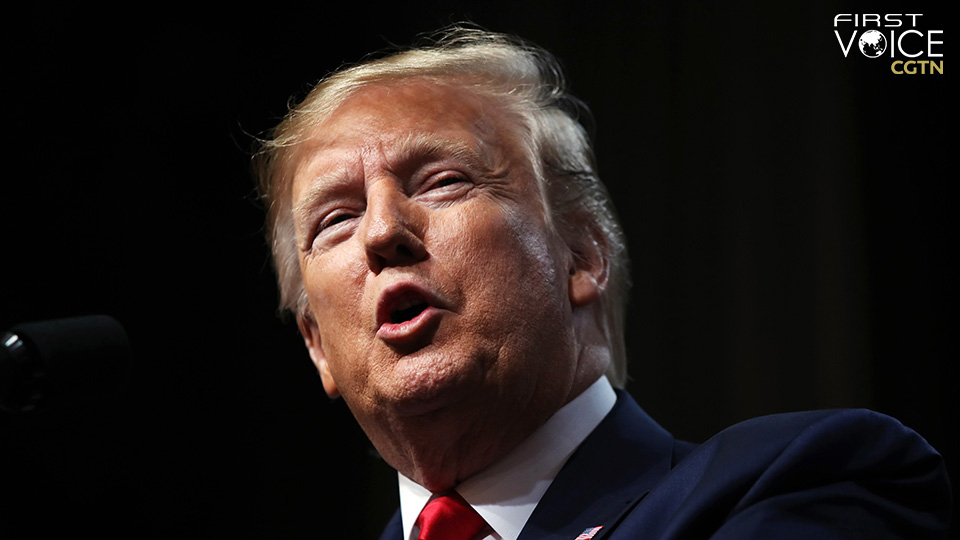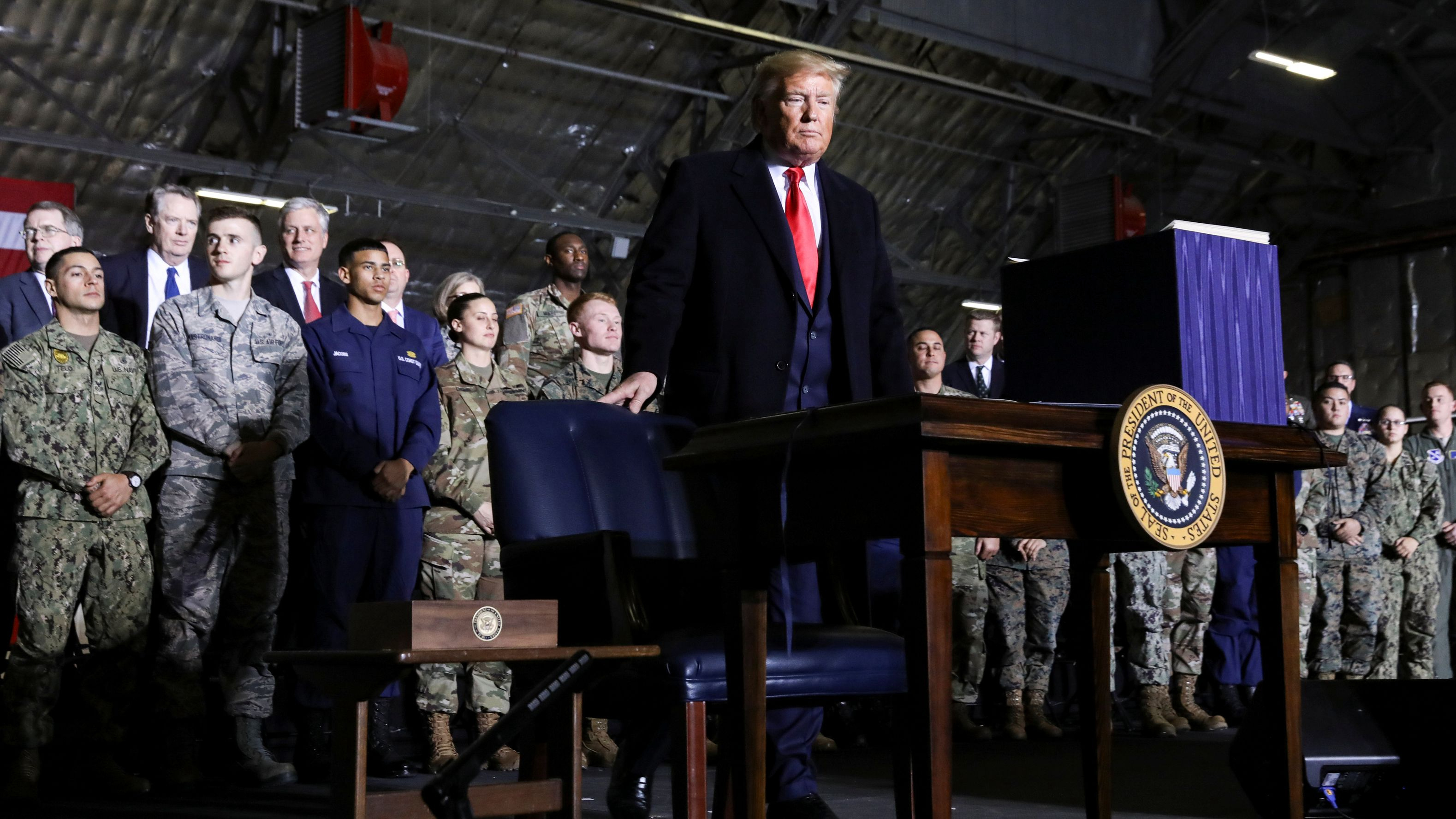
Editor's Note: CGTN's First Voice goes beyond the headlines to dissect, examine and analyze hot-off-the-press issues and break down breaking news into simple bits. The daily column offers a Chinese perspective on global current events to help you shape your views on matters that shape your life.
In a phone conversation with his U.S. counterpart Donald Trump, Chinese President Xi Jinping emphasized that the phase one trade deal benefits China and the U.S., as well as peace and prosperity across the whole world. In the meantime, Xi expressed serious concerns over Washington's recent negative rhetoric and behaviors on issues related to China's Taiwan, Hong Kong, Xinjiang and Tibet.
After 17 months of bare-knuckle trade battling, the phase one agreement between the world's two largest economies is seen by many as "historic," especially at a time when the international environment has become increasingly complicated.
For Trump's part, as the president has been perplexed by the impeachment inquiry, a trade deal with the world's top buyer of U.S. soybeans will help divert domestic attention from the scandal and may help woo American farmers in the 2020 election. American farmers and blue-collar workers supported Trump in 2016 but have suffered the most from Trump's tariff fight, according to the World Bank. Ending trade tensions with China is one of the most effective ways for Trump to boost his approval rate ahead of next year's election.
For China's part, although the country's economy is resilient enough to withstand exterior uncertainties, an agreement with the U.S. may further stabilize its high-quality economic growth. Therefore, both China and the U.S. must respect and cherish the hard-won phase one deal that was clinched based on mutual trust and multi-win outcomes.

U.S. President Donald Trump gets ready to sign the "National Defense Authorization Act for Fiscal Year 2020" at Joint Base Andrews, Maryland, U.S., December 20, 2019. /Reuters Photo
U.S. President Donald Trump gets ready to sign the "National Defense Authorization Act for Fiscal Year 2020" at Joint Base Andrews, Maryland, U.S., December 20, 2019. /Reuters Photo
However, the U.S. has recently jeopardized the basis of the deal via a slew of provocative acts on issues concerning China's national dignity and sovereignty.
Following the maliciously-intended hype over Xinjiang's human rights conditions and the passage of bills supporting Hong Kong violent protests and sanctioning Chinese officials believed to have interfered in the reincarnation of the Dalai Lama, the U.S. passed a defense spending bill this week that contains further statements of support for so-called Hong Kong "activists."
For decades, American politicians and media outlets have never showed restraint in their anti-China campaign. While some are driven by Cold War zealotry, many China hawks speak for political gain. Despite their divergent policies on domestic issues, Democrats and Republicans always converge together when it comes to China. It is a bipartisan consensus that the "China threat" is always the best card to play in the election bid. With the clock ticking down to the 2020 general election, it's not surprising that the anti-China narrative is again starting to take hold in Washington.
"China" is also one of the most frequently heard words every time the U.S. intends to ram through a bill on its soaring defense budgets.
The more China is a "threat," the more justified the defense-intelligence community feels in asking for more funding. The "concerning" situations in China's Hong Kong, Tibet, Taiwan and Xinjiang may be part of the reason a 738 billion U.S. dollars defense budget – topping levels during the Korean and Vietnam wars – was eventually approved after months of negotiations.
Various political forces in the U.S. are playing the China card for their respective gains, but all are at the sacrifice of the China-U.S. relationship.
In spite of temporary gains, these anti-China hawks will suffer in the long run. Mutual trust is the basis of a sound China-U.S. relationship, but provocations on China's national dignity and sovereignty will tremendously jeopardize the mutual trust and thus shake the foundations of Sino-U.S. ties and have consequences for the wider world.
As the world is anticipating a fundamental China-U.S. trade deal, the U.S., just as President Xi noted, should pay high attention and attach great importance to China's concerns and prevent bilateral relations from being disturbed. If the U.S. insists on interference in China's domestic affairs, no party will win in the end.
Written by Liu Jianxi
(If you want to contribute and have specific expertise, please contact us at opinions@cgtn.com.)